Peruvian Writer Mario Vargas Llosa Dies at 89: What Happened?
Attorney Enrique Ghersi, campaign manager for the writer during his presidential bid in Peru, has revealed the cause of death
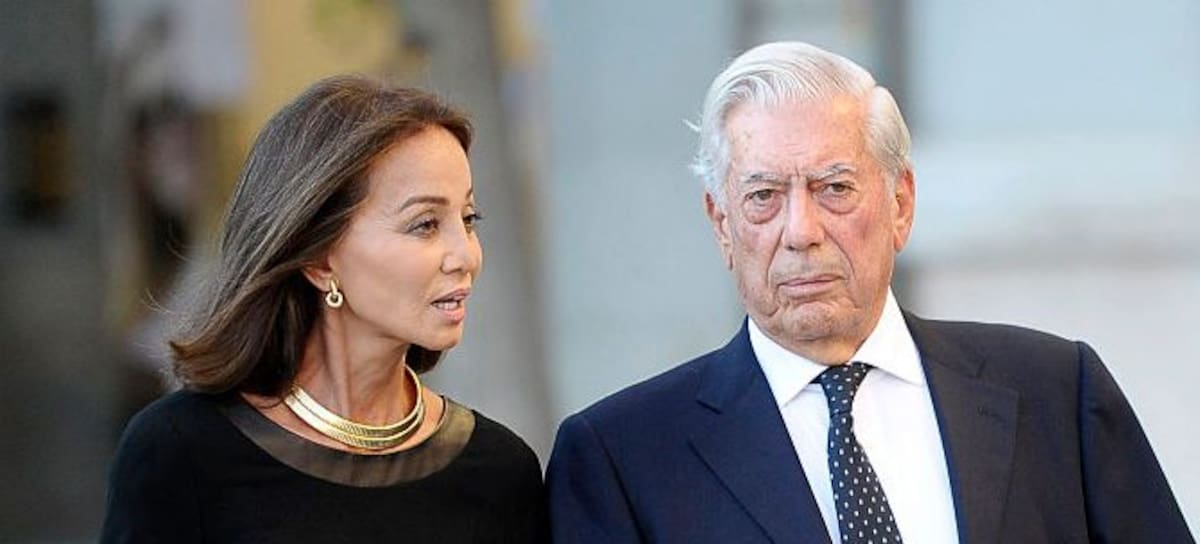
MADRID, SPAIN - SEPTEMBER 22: Mario Vargas Llosa and Isabel Preysler are seen arriving at Royal Theatre to attend the first opera of the season on September 22, 2015 in Madrid, Spain. (Photo by Europa Press/Europa Press via Getty Images)
On March 28, Mario Vargas Llosa turned 89. But he will not see 90, as he passed away this Sunday in Lima. His children, Álvaro, Gonzalo, and Morgana, confirmed the news through a public statement.
“His passing will sadden his relatives, friends, and readers, but we hope they find comfort, as we do, in the fact that he lived a long, multifaceted, and fruitful life, and leaves behind a body of work that will outlive him. In the coming hours and days, we will proceed according to his wishes,” the statement read.
According to his former campaign manager during his run for the presidency of Peru, Enrique Ghersi, Vargas Llosa is believed to have died of pneumonia.
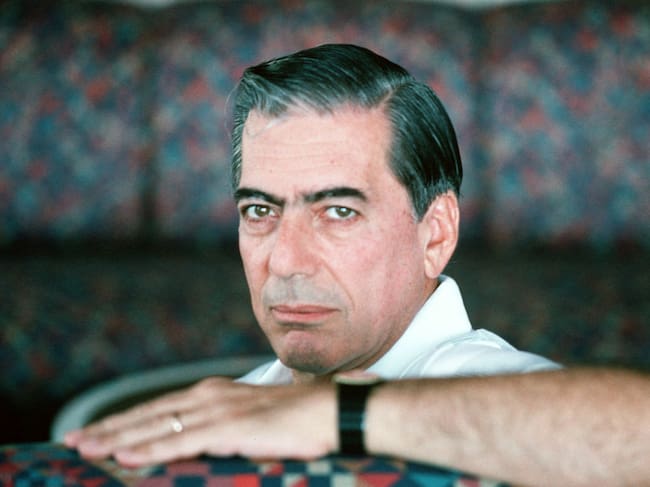
Peruvian writer, journalist, essayist, college professor Mario Vargas Llosa, Taormina, Italy, 27th July 1990. (Photo by Leonardo Cendamo/Getty Images) / Leonardo Cendamo
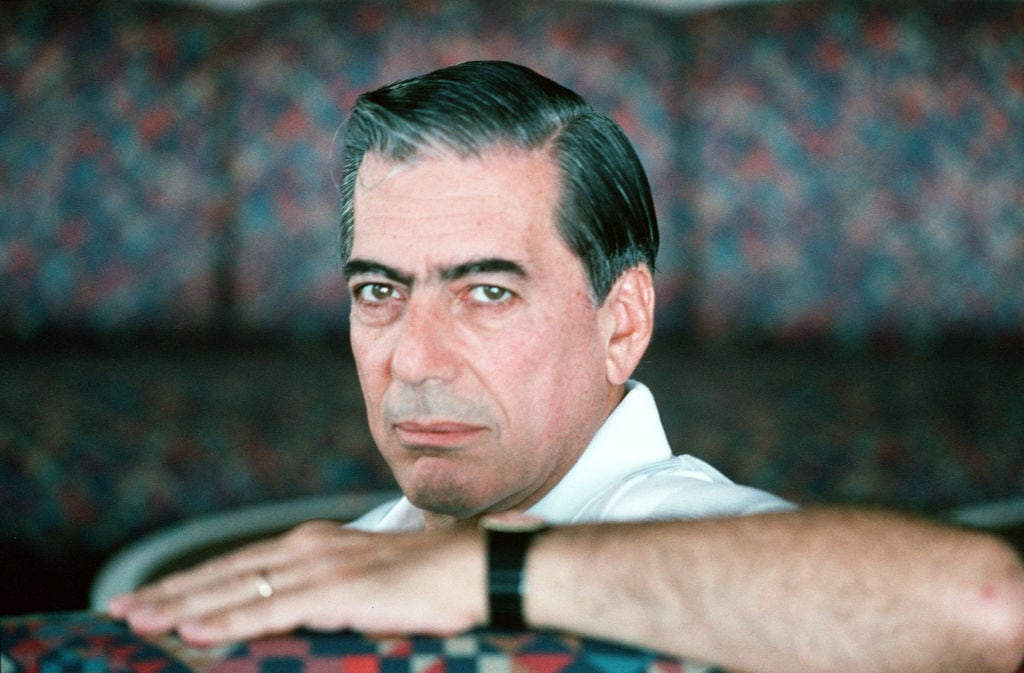
Peruvian writer, journalist, essayist, college professor Mario Vargas Llosa, Taormina, Italy, 27th July 1990. (Photo by Leonardo Cendamo/Getty Images) / Leonardo Cendamo
The World Bids Farewell to Mario Vargas Llosa: Reactions to the Nobel Laureate’s Death
“There will be no public ceremony. Our mother, our children, and we hope to have the space and privacy to say goodbye to him as a family and in the company of close friends. His remains, as was his wish, will be cremated,” the same statement continued.
His farewell began gradually. With his final novel, I Dedicate My Silence to Her, published in 2023, he said goodbye to fiction. Two months later, he stepped away from Piedra de Toque, his long-running column in El País, which he had written since 1990.
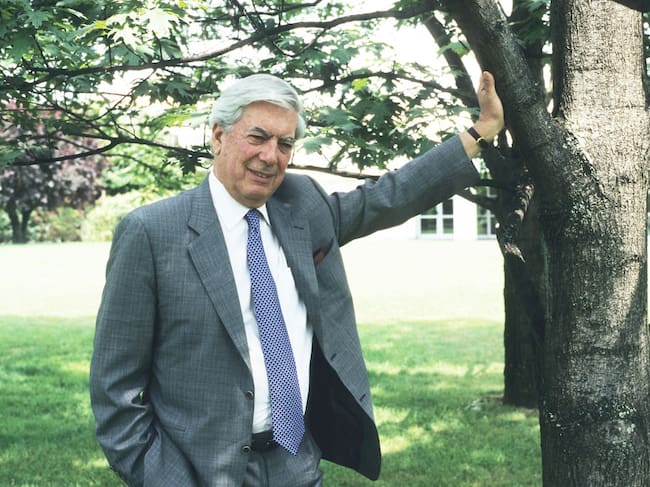
Peruvian writer, journalist, essayist, college professor Mario Vargas Llosa, Alba, Italy, 17th June 1989. Leonardo Cendamo/Getty Images / Leonardo Cendamo
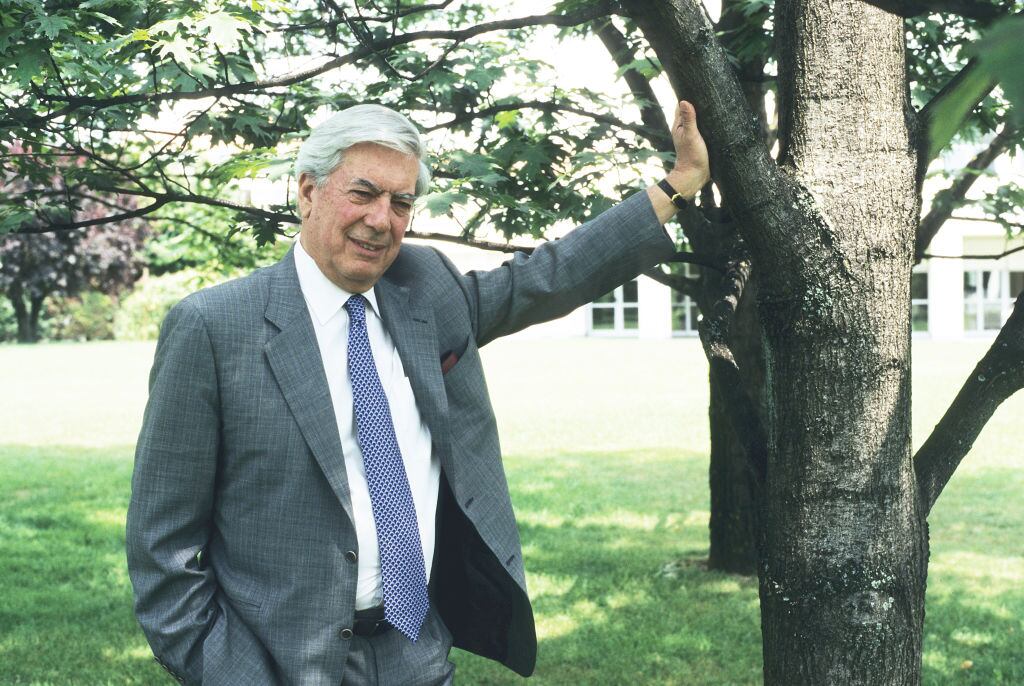
Peruvian writer, journalist, essayist, college professor Mario Vargas Llosa, Alba, Italy, 17th June 1989. Leonardo Cendamo/Getty Images / Leonardo Cendamo
“For his cartography of power structures and his sharp images of individual resistance, rebellion, and defeat,” the Swedish Academy awarded him the Nobel Prize in Literature in 2010, a long-awaited recognition.
At the time, he was 74 and had been writing and publishing non-stop since the age of 23. His prolific and expansive literary career left us with masterpieces like The Feast of the Goat (2000).
A Giant of Latin American Letters
If the literary world had a Lista LOS40 chart, Mario Vargas Llosa would’ve had a spot secured for decades. Born in Arequipa, Peru, in 1936, his story didn’t begin with pen and paper but with a childhood marked by the sudden reappearance of an authoritarian father he believed was dead. Perhaps that’s where the critical, sometimes harsh lens that runs through his work was born.
Before becoming a novelist, he was a journalist, radio host, and even a law student. But his heart always belonged to literature. In 1959, he moved to Paris, where he worked various jobs while writing. His breakthrough came in 1963 with The Time of the Hero, a novel that shook up Latin American literature with its fierce critique of military education. It won prizes—and made enemies. The book was publicly burned at the Leoncio Prado military academy, the same one he attended.
That moment marked the beginning of a meteoric rise. Novels like The Green House, Conversation in the Cathedral, and The War of the End of the World cemented his place among the most powerful voices of the so-called “Latin American Boom,” alongside García Márquez, Julio Cortázar, and Carlos Fuentes. (Though it’s worth noting—he and Gabo ended up coming to literal blows, but that’s another story.)
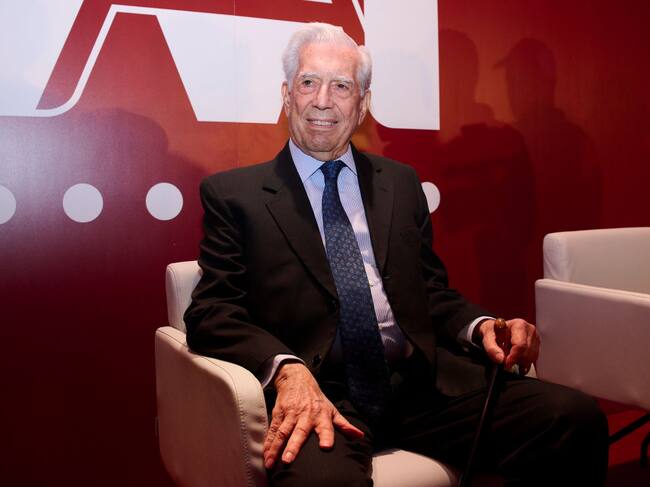
Mario Vargas Llosa attends the «Madrileño del Año 2022» award at the Royal Theater on October 10, 2022 in Madrid, Spain. Carlos Alvarez/Getty Images / Carlos Alvarez
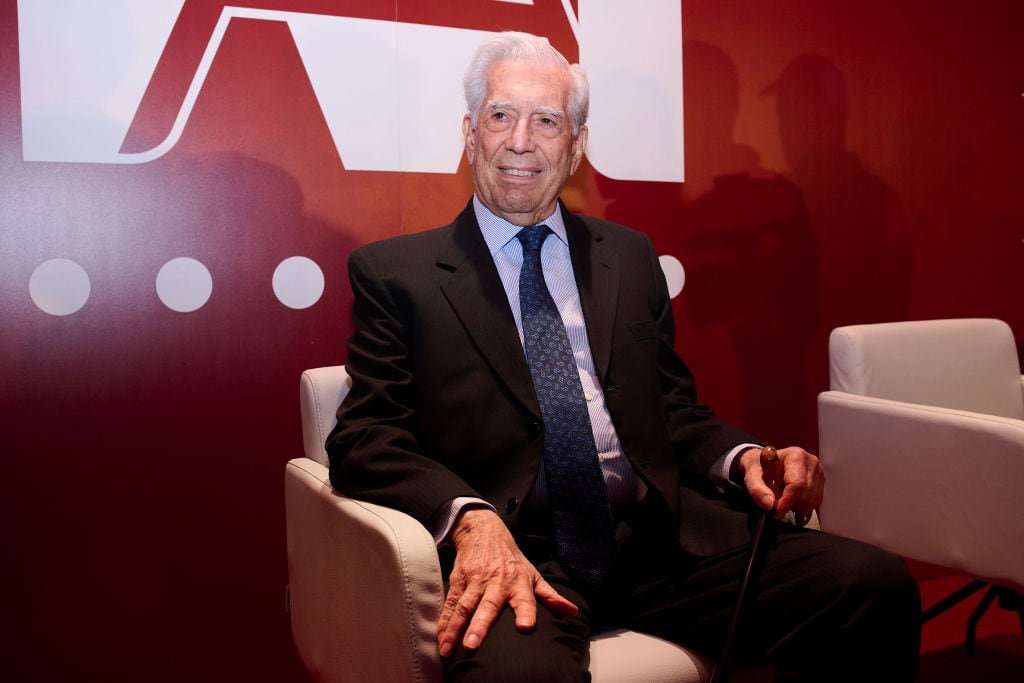
Mario Vargas Llosa attends the «Madrileño del Año 2022» award at the Royal Theater on October 10, 2022 in Madrid, Spain. Carlos Alvarez/Getty Images / Carlos Alvarez
Unlike some of his peers, Vargas Llosa didn’t stay confined to fiction. He was a fierce political analyst, a staunch advocate of liberalism, and a critic of populism and authoritarianism in all forms. So much so that in 1990, he ran for president of Peru. He lost to Alberto Fujimori, but his candidacy marked a turning point in his public image. No longer “just” a writer, he became a committed, controversial, and ever-present public intellectual.
His novels tackled ambitious themes: power, corruption, sexuality, history, and individual freedom. In The Feast of the Goat, he delved into the Trujillo dictatorship in the Dominican Republic; in The Bad Girl, he turned more nostalgic and sentimental, while maintaining his signature irony. Though often criticized for his ideological stance, he also racked up awards.
Loved and criticized, but never ignored, Vargas Llosa is one of those names forever etched into the history of literature—like a hit song that never fades.
Mario Vargas Llosa and Isabel Preysler: Love, Luxury, and Magazine Covers
In 2015, Mario Vargas Llosa shocked the world when his relationship with Spanish socialite Isabel Preysler—ex of singer Julio Iglesias, father to Enrique Iglesias—became public. The Nobel Laureate, who had been married for decades to his cousin Patricia Llosa, confirmed their separation shortly after and started appearing in magazines alongside Isabel. The couple became a media sensation: events, royal dinners, glamorous trips, and plenty of press attention.
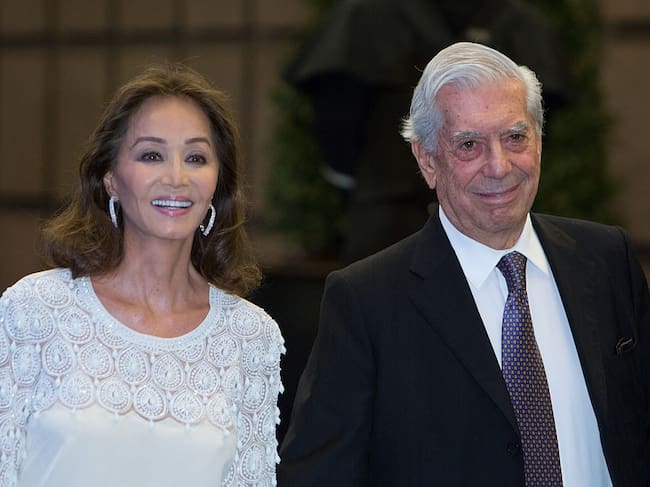
Isabel Preysler and Mario Vargas Llosa attend the Mario Vargas Llosa 80th birthday party at the Villa Magna hotel on March 28, 2016 in Madrid, Spain. Pablo Cuadra/Getty Images / Pablo Cuadra
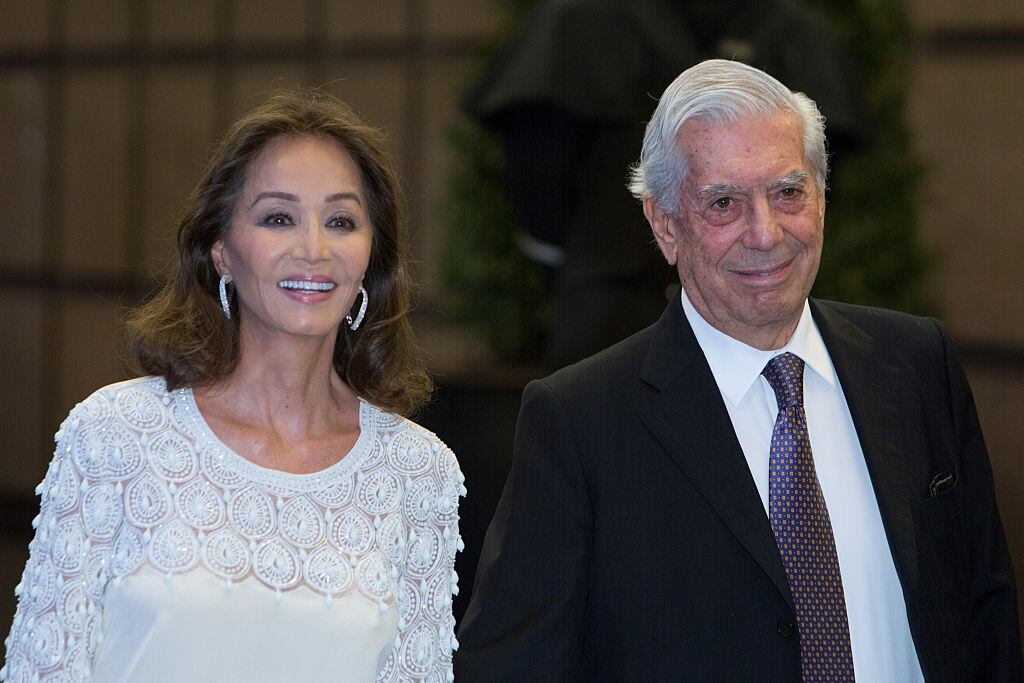
Isabel Preysler and Mario Vargas Llosa attend the Mario Vargas Llosa 80th birthday party at the Villa Magna hotel on March 28, 2016 in Madrid, Spain. Pablo Cuadra/Getty Images / Pablo Cuadra
For more than seven years, they were inseparable in public—blending high literature with tabloid glamour. He spoke of love with enthusiasm and didn’t mind posing for magazines; she, poised and used to the spotlight, seemed to manage it all with ease. But in December 2022, the relationship ended—quietly, without scandal, but with some public buzz. Vargas Llosa returned to his family circle and resumed a more private life.
“The idea of death doesn’t frighten me. Life is wonderful precisely because it ends. If we lived forever, it would be unbearably boring, mechanical. Being eternal would be horrifying. Life’s greatness lies in its ending.” —Words from Mario Vargas Llosa, now resonating across social media.
Ana Rojas
Periodista en LOS40, coordinando LOS40 USA y colaborando también en El País. Cubro temas de música,...
